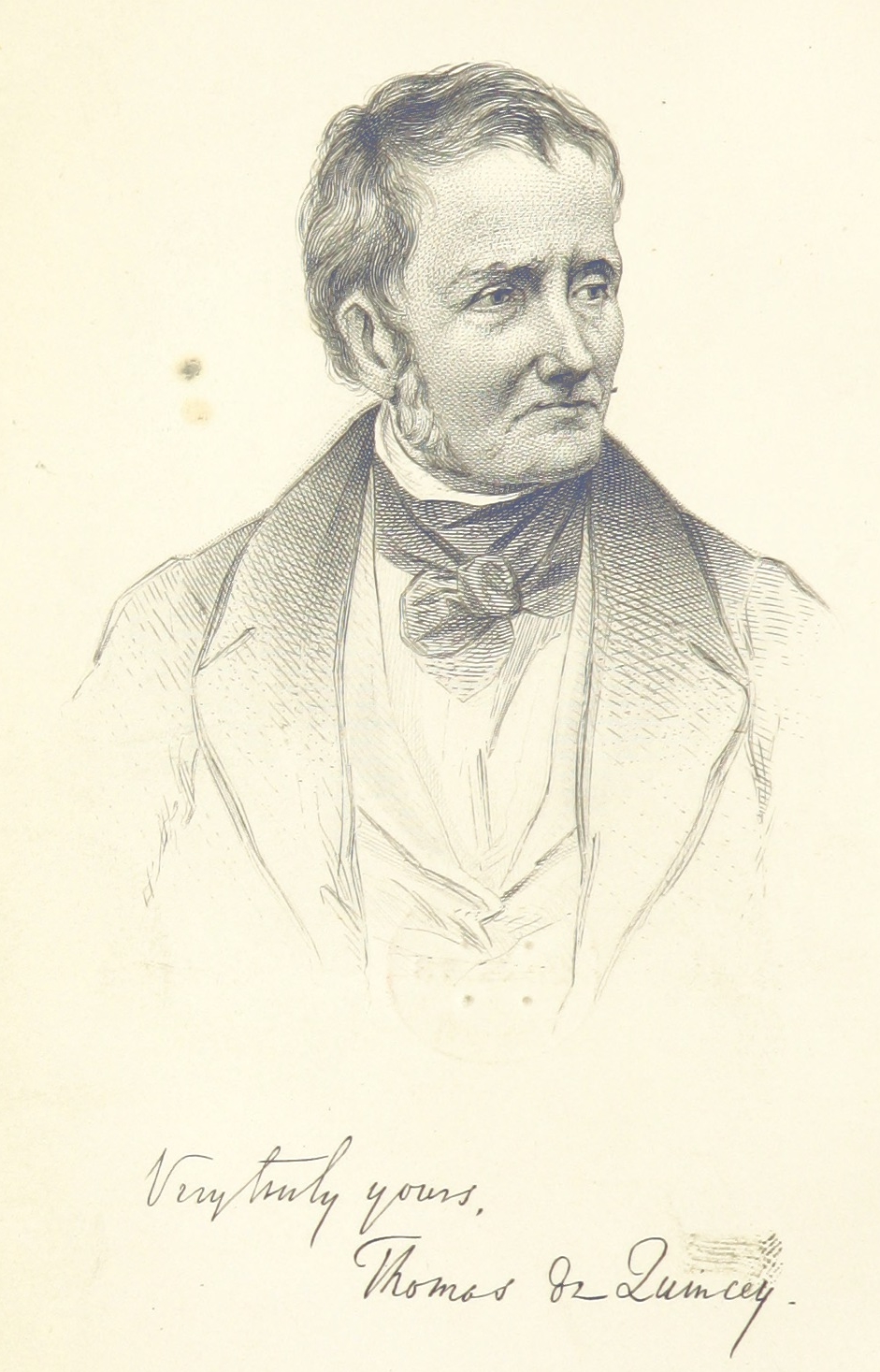
Can a childhood love be the strongest and most beautiful feeling ever experienced? And is this love the truest when it unites a brother and a sister?
The childhood of Thomas De Quincey was marked by the affliction of death. He had three sisters, who were his playmates, whith whom he lived day and night: Elizabeth (two years older than him), Mary (one year older), and Jane (one year younger). At age 4, he first lost Jane, aged 3, but at that time he could not comprehend death fully. Then, two months before his 7th birthday, Elizabeth died at the age of 8 or 9. Last, his father died one year later.
The death of his beloved sister Elizabeth proved to be the most traumatic event in his life. She would haunt De Quincey’s memory, in his loves and his drug use. This loss, and more generally the affliction of his childhood, lies at the heart of his most original work, Suspiria de Profundis, subtitled Being a sequel to the confessions of an English opium-eater, which he published in Blackwood’s Magazine in 1845. This collection of essays and prose poems continues the exploration of drugs started in his Confessions, in particular their relationship with creativity.
Here is his most eloquent testimony to Elizabeth in Suspiria de Profundis:
Fifty thousand sneering faces would not have troubled me in any office of tenderness to my sister’s memory. Ten legions would not have repelled me from seeking her, if there was a chance that she could be found. Mockery! it was lost upon me. Laugh at me, as one or two people did! I valued not their laughter. And when I was told insultingly to cease ‘my girlish tears,’ that word ‘girlish‘ had no sting for me, except as a verbal echo to the one eternal thought of my heart—that a girl was the sweetest thing I, in my short life, had known—that a girl it was who had crowned the earth with beauty, and had opened to my thirst fountains of pure celestial love, from which, in this world, I was to drink no more.
The feelings of children are stronger and deeper than what adult generally acknowledge. Children bereft of love, having lost a beloved one or not having met that special one, will suffer from solitude much more than what one usually realizes:
Deep is the solitude in life of millions upon millions who, with hearts welling forth love, have none to love them. Deep is the solitude of those who, with secret griefs, have none to pity them. Deep is the solitude of those who, fighting with doubts or darkness, have none to counsel them. But deeper than the deepest of these solitudes is that which broods over childhood, bringing before it at intervals the final solitude which watches for it, and is waiting for it within the gates of death.
Source of the citations: Thomas De Quincey, Suspiria de Profundis, in Confessions of an English Opium-Eater and Other Writings, Oxford University Press (2013).

